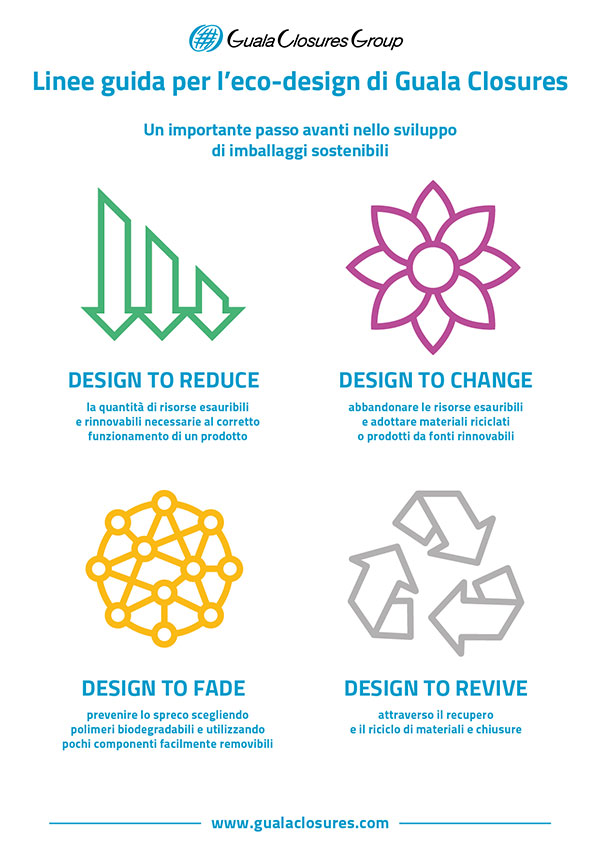Guala Closures builds on its sustainability commitment

Design to Reduce, Design to Change, Design to Fade and Design to Revive are the new eco-design guidelines to achieve the challenging objective of using 35% of recycled materials by 2025.
As part of its Corporate Social Responsibility (CSR) commitment and strategy, Guala Closures Group has developed eco-design guidelines for its five R&D centres (Italy, Mexico, UK, Ukraine and Luxembourg). These facilitate the development of sustainable closures by following four defined models for design, which are detailed in the full guidelines.
The purpose of the document is to outline all of the steps that designers should follow, from concept to finished product.
Design to Reduce - a principle based on eco-design and on eliminating anything that is not necessary; Design to Change - abandoning finite resources and adopting recycled materials or materials produced from renewable sources; Design to Fade - this approach entails making the waste disappear by changing to biodegradable polymers and by using few, easily removable components; and Design to Revive–achieved by recovering and recycling the materials used in the closures.
These guidelines are a very big step towards providing our customers with products which meet their requirements on performance, quality and sustainable performance - commented Fulvio Bosano, R&D Director of Guala Closures Group, who coordinated the development and implementation of the eco-design guidelines commented - “These guidelines are a very big step towards providing our customers with products which meet their requirements on performance, quality and sustainable performance. They can be guaranteed Guala Closures has looked at every aspect in the development of the best closure for their needs.”
The development of innovativesustainable closures started a few years ago with the commercial launch of Greencap®, ascrew cap for wine that allows safe separation of aluminium and glass after use (developed by the R&D centre in Italy); and a luxury closure for tequila, made from a bio-based composite resin using 30% agave fibres (obtained from the waste that remains after the tequila distillation process) and 70% polypropylene (developed by the R&D centre in Mexico). Recently, a t-bar closure for a rum brand composed ofa 100% recycled ABS plasticwith agglomeratedcork (developed by the R&D centrein the UK) was also added o theportfolio.
With its continuous development programme, the Group intends to launch, later in 2020, a comprehensive range of sustainable closures for wine, spirits, and beverages, all of which meet at least one of the four design models listed in the guidelines.




















